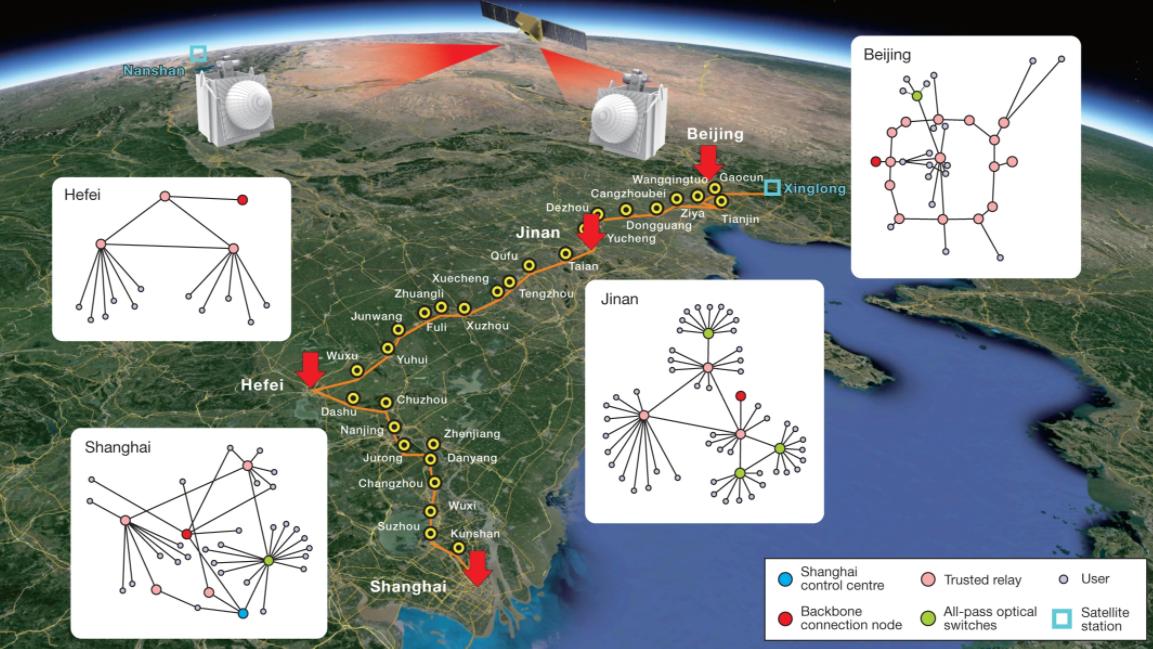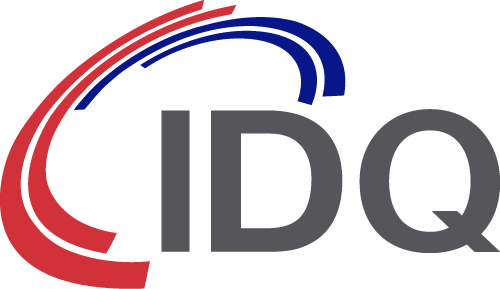IDQ Quantum Computing Review Q1 2021
Welcome to our first review of the Quantum Computing landscape for 2021. This quarter’s review of global quantum computing news indicates that the use of quantum technology is set to rapidly increase over the next few years, with significant investment from national governments, international corporations and startups helping to drive research and innovation across all applications. After the upheaval and uncertainty of the past year, quantum computing organizations around the world have turned their focus to growth and innovation that will enable society to weather future global crises.
EU presents plan to develop its first quantum computer.
The EU has announced that its targets for research, engineering and manufacturing of digital technologies over the next decade will encompass a focus on advancing quantum technologies. The plan includes the aim to build the EU’s first quantum computer in the next five years, acknowledging the importance of quantum technologies in research.
“It is our proposed level of ambition that by 2025, Europe will have the first computer with quantum acceleration paving the way for Europe to be at the cutting edge of quantum capabilities by 2030.” – 2030 Digital Compass plan.
France aims to become leader in Quantum Technology.
At the beginning of the year, the President of France Emmanuel Macron revealed a national plan to invest 1.8 Billion Euros into quantum technologies over the next five years. This will place France among the top three countries who have invested in quantum technologies and will distribute funds for research and development into quantum computers, quantum sensors, Post-Quantum cryptography, quantum communications, and related technologies for building quantum equipment, such as cryogenics. Macron declared the aim of the investment is for France to become “the first state to acquire a complete prototype of general-purpose quantum computer”.
Germany launches ‘Munich Quantum Valley’ initiative
In Germany, the state of Bavaria has launched a quantum initiative dubbed ‘Munich Quantum Valley’. This initiative is based on collaboration between the Bavarian Academy of Sciences and Humanities, the Fraunhofer-Gesellschaft, the Ludwig Maximilian University of Munich, the Max-Planck-Gesellschaft and the Technical University of Munich with funding of 300 million Euros coming from the Free State of Bavaria. The joint organizations have developed a three-point plan to expand research, development, and education and training in quantum science and technology.
Israel invests in Quantum Computing for Defense
Israel has also announced a plan to invest $60 million in building a Quantum computer, expanding its national initiative to increase quantum proficiency and compound its standing as a global tech powerhouse. The project will be funded by Israel’s Ministry of Defense and Innovation Authority, a clear indication of the government’s recognition of quantum technology’s role in national defense.
ID Quantique joins European Quantum Industry Consortium (QuIC)
A new industrial group, The European Quantum Industry Consortium (QuIC), held its first general assembly this month with a gathering of 100 members from all sectors of the quantum industry headquartered in Europe, representing SMEs, large corporations, venture capitalists as well as research organizations, academic institutions and other industrial associations from all over the continent. Nicolas Gisin, ID Quantique’s co-founder and board member will take an active role as member of the governing board.
“The launch of an industrial consortium for European companies working on quantum technologies is a key, and long awaited, step forward for the technology in the region.” – Nicolas Gisin, ID Quantique
IonQ will become the first pure-play quantum hardware company to go public.
Quantum Computing firm IonQ is expected to soon become a publicly listed company through a merger with dMY Technology Group III, a special-purpose acquisition company, creating a combined entity worth an estimated US $ 2 Billion. The deal will make IonQ the first pure-play quantum hardware company to go public.
“I’ve had to raise money for the company many times. Some people I talked to said it was too early for them to invest in quantum. But if you look at the investors in every previous round, we were the lead investment in their portfolios. And with this deal, we’ve now made our existing investors hundreds of millions of dollars to-date.” – Peter Chapman, CEO of IonQ
The announcement has been welcomed by the market, validating earlier investments in quantum technologies, and paving the way for other quantum companies to secure increased investment.
Microsoft Azure Quantum opens for business.
Microsoft announced that Azure Quantum, the “world’s first full-stack, public cloud ecosystem for quantum solutions, is now open for business.” The platform is designed to enable developers, researchers, and even end users, to access quantum computing and optimization solutions in the cloud, using familiar tools. It aims to allow organizations to accelerate their R&D as well as being able to collaborate with experts and other members of the community.
Global Energy companies research quantum technologies to improve efficiency.
Some of the world’s largest energy companies are researching how quantum technologies can be used to optimize global transport operations. ExxonMobil and IBM are investigating how a quantum computer can help solve the complex task of tracking tens of thousands of merchant ships across the world, and the millions of goods and products that they carry on every journey. The annual value of goods shipped is over $14 trillion, so an optimal solution could have a huge impact on shipping efficiency.
BP has joined IBM’s Quantum Network and the two companies will work together “to solve business and engineering challenges and explore the potential applications for driving efficiencies and reducing carbon emissions.” The companies say that quantum computing will be used in areas such as modelling analysis and optimizing autonomous robots.
Honeywell achieves a Quantum Volume Measurement of 512
Honeywell has announced that the performance of their H1 quantum computer has been quadrupled. Using the Quantum Volume (QV) benchmark, the machine’s performance has improved from 128 to 512. This achievement would indicate that the H1 demonstrated the highest measured performance of a commercial quantum computer, surpassing the previous achievements of IBM.
“Through performance upgrades, System Model H1 achieved a quantum volume of 512, the highest measured on a commercial quantum computer to date. It is the third time in nine months Honeywell has set a record for quantum volume on one of its systems.” – Honeywell
China reveals further advances in Quantum Computing and Communications
Two scientists from the Chinese Academy of Sciences have replicated Google’s Quantum supremacy experiment in a period of 5 days using 60 NVIDIA GPU cores. Google’s original demonstration was completed in 200 seconds, but the Chinese experiment achieved a much higher level of linear cross-entropy benchmark (XEB) fidelity of 0.739. They say that their method, using a general tensor network for the simulation, is more efficient than existing methods and is able to output the exact amplitude and probability of any bit string. While the Chinese approach develops less noise and can compute conditional probabilities that can be sampled, the full quantum approach still offers the significant advantage of speed.
”Also, the GPU would require exponential scaling when you start adding more qubits and more levels. So, if Google were able to rerun their experiment with more qubits or more levels, the cost and/or the runtime of the GPU implementation would quickly make this approach intractable.”
Another group of scientists have created the world’s first integrated quantum communications network covering a total distance of 4,600 kilometers between Shanghai and Beijing. The network, used of Quantum Key Distribution, “supports an average key generation rate of 47.8 kilobits per second, 40 times higher than the previous rate.” The network uses a combination of fiber network and satellite communications with trusted nodes that employ a “quantum-to-classical-to-quantum” process to repeat the signal.

Image: University of Science and Technology of China
“Unlike conventional encryption, quantum communication is considered unhackable and therefore the future of secure information transfer for banks, power grids and other sectors.”
Most excitingly, the planned next phase of the research aims to expand the network internationally to partner organizations in Canada, Russia, Italy and Austria.
CNRS first in Europe to demonstrate Quantum Advantage.
After Google and China claimed to have achieved quantum advantage, the CNRS (Centre national de la recherche scientifique) based in Paris, was the first organization in Europe to experimentally demonstrate the computational advantage over a classical machine. As reported in the journal Nature Communications, the demonstration utilized two of ID Quantique’s SPAD-based ID230 single-photon detectors.
Eleni Diamanti, Research director at CNRS, commented: “For the practical demonstration of the quantum advantage for our algorithms, we needed a simple to use but highly stable photonic system which included two telecom-wavelength ID230 single-photon detectors. The SPAD-based modules provide very low Dark Count Rate at a relatively high detection efficiency. The detection events were then easily processed for validation.”
Could classical algorithms challenge Quantum?
A German cryptographic researcher claims to have developed a classical algorithm for factoring large integers, which could be much faster than previous classical algorithms. The paper has yet to be peer-reviewed but if it is proved that the algorithm works, it could compete with Shor’s famous quantum factoring algorithm (which alerted the cryptographic community to the fact that common encryption technology could be broken by a quantum computer).
“If the algorithm does indeed work and is successfully implemented by somebody, it would trigger a rush in the IT world to convert encryption methods for key distribution to either Quantum Key Distribution (QKD) technology or the newer PQC algorithms that are not based upon factoring large numbers.”
IDQ in the news
- ID Quantique and SK Telecom unveil the Samsung Galaxy Quantum2, the newest QRNG-Powered 5G smartphone with even more embedded secured applications
- Aju Business Daily: SK Telecom applies quantum cryptographic communication technology to IP equipment
- Seetalk Communications choose a quantum-enhanced crypto module for its new VoIP phones
- XN Systems and ID Quantique partner to promote a Quantum-Safe VPN solution
- The Quantum Daily: Schrödinger’s Unicorns: 12 Private Quantum Startups That May Become — Or May Already Be — Billion Dollar Companies
- ID Quantique contributes to latest Open QKD review of current standardization landscape
- SDxCentral: Colt, ADVA Trial Quantum-Safe Network Encryption
- Léman Bleu: Le Monde de Demain: Le cryptage des données
- GreenZone Security adopts quantum technologies to secure the Internet of Things and make people’s lives safer



